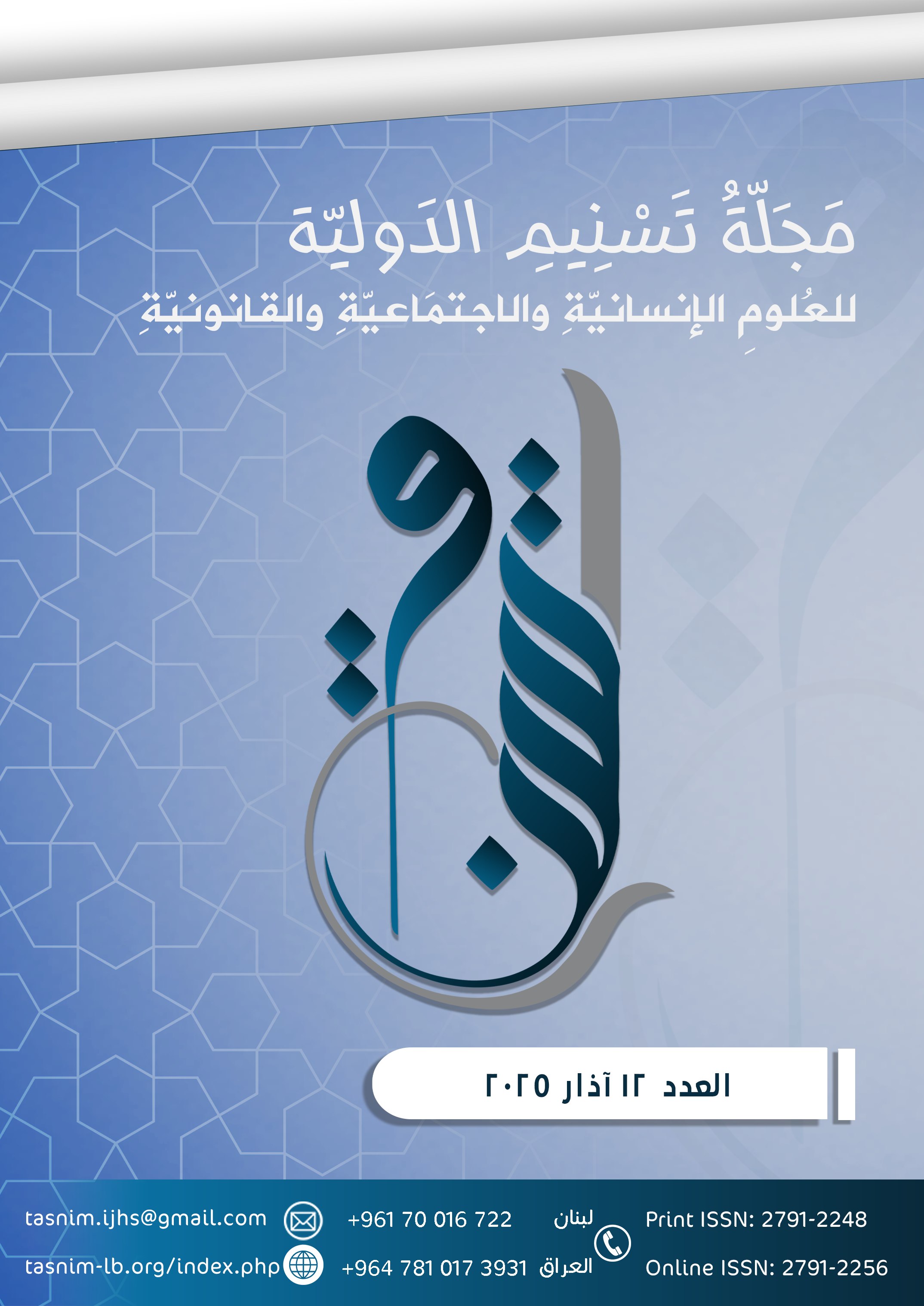سلــــــطة النقد في التراث النقدي العربي
DOI:
https://doi.org/10.56924/tasnim.12.2025/12Abstract
The research deals with Arab criticism in its various eras from its early beginnings in the pre-Islamic era to the present time, and the research covers a wide time period in studying criticism and its changes. The critical process has gone through different historical stages, In fact, I wanted in this research to quickly review the state of Arab criticism in ancient and modern times, focusing on the most important stations in this topic, and I tried to show the value of the effort made by our scholars in this field, in its various aspects and details. The poets were not free in what they expressed, as there were many restrictions that prevented them from taking off and limited their freedom of expression, and criticism was an obsession for poets, and perhaps this led to battles and disputes between poets and critics. Literature and history books abound with that debate between poets and critics, which sometimes reaches debate and dispute. The ancient critics set standards and foundations that burdened the poet and restricted him, and this situation was one of the direct reasons for the delay of Arabic poetry. The modern poet spoke in a language other than his own, and restored the previous language for clarity. There was no creativity, innovation, or openness, but rather closure, stagnation, and rigidity.
Downloads

Downloads
Published
How to Cite
Issue
Section
License
Copyright (c) 2025 Tasnim International Journal for Human, Social and Legal Sciences

This work is licensed under a Creative Commons Attribution-NonCommercial-NoDerivatives 4.0 International License.





